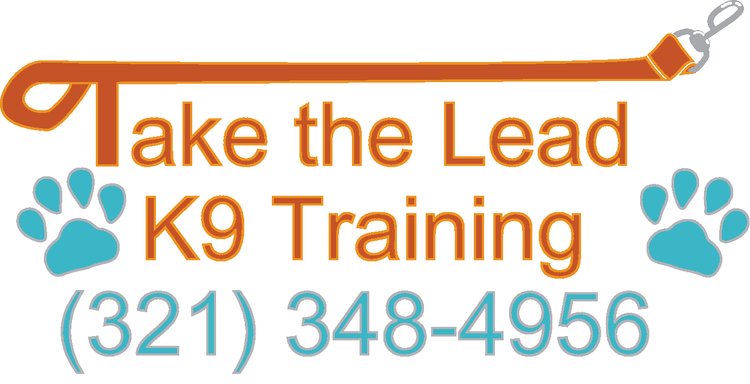The "Best Doggie Behavior" Check List! (How to get great stuff from your dog!)
Just some little tidbits I think may be helpful to my wonderful clients and those working with their pups :)
When it comes to getting great stuff from your dog:
- Be relevant to your dog by setting the tone early, and often (especially if you've got a pushy pup!) Look for little moments like thesholds or forging ahead to stop/sit/correct OR do a couple 180 degree directional changes (called tap and turns, for those familiar).
- Too Low, Too Slow! You may be underwhelming your dog and late on information - especially if you're still struggling with staying in command around distractions and not pulling/lunging on the walk.
- Just keep swinging, just keep swinging... (kind of like Dory from Finding Nemo, but instead a friendly reminder from Vic(Tori)a the Dog Trainer ;) Don't forget to swing your arms as you walk - that leash is like holding hands with your dog :)
- If your dog likes to rush, walk slow and randomize your pace. Fast walking is so easy for most dogs, slow (snail speed) with accountability for being in heel is so HARD and mentally challenging. Challenge their mind and focus, and you'll have a dog a million times more tired than miles of running.
- No barking, lunging, marking, sniffing, or pulling during the walk. Potty and sniff breaks are on your terms - constant marking and dragging their nose on the ground are huge red flags to a tuned out dog. It's a precurser to the pulling, barking, or lunging you will see the first time any sort of distraction appears. Walks are for training and leadership, and have specific sniff times based on your desicion. The more pushy/reactice your dog is the MORE important this structure to your walks is.
-If your dog ignores you on the walk it's probably because they are doing one of these things, or are thinking about it (their leaning into the grass body language, eye balling every tree, intensely looking at people/birds/cats/dogs etc). Interrupt that stuff...it's the first step into the cycle of a not-so-great-walk. Don't wait for your dog to react, because by then you are too late - STOP the cycle at these little moments!
- Duration work is a must! Less free roaming and start influencing choices by giving direction. Hold them accountable to staying there! They don't have to be exhausted to be calm.
- Look for situations your training struggles with your dog's excitability/reactivity and set them up to practice. Turn them into training drills and repeat them often so that they arn't weaknesses anymore. Don't wait until the pizza man is at the door to address breaking place and running over there, do this 15 minutes everyday for 7 days, correcting (successfully!) breaking command/attitude issues. You neednto have meaningful conversations during these drills so that when it's actually GO time, your dog has had practice!
- Exercise and play is important, but don't let it be a free for all! It's on your terms and with respectful boundaries set - make there be rules to the games!
- If it's not polite, it's not nice! Correct (effectively...don't be too low, too slow!) pushy stuff like jumping up, charing into your space, barking for attention, pawing things, whining, crying, etc.
- Dogs will make mistakes, but don't let that be an excuse for poor behavior.
- Address the little stuff, so you won't have the big stuff. If your dog is acting out, ignoring you, tuning you out, etc. that means you are missing little moments that are the difference between success and failure.
- Be equal in your affection and direction. (To be honest, no one really does this well...affection always seems to weigh larger than direction...even if you are trying to do this!) If you are still struggling with your dog and their behaviors, it's time to cut way back on affection. It's not forever, but until your dog truley takes you seriously.
- Work smarter, not harder - once your dog is trained, it's time to hold them accountable! If you're busting butt with your dog everyday, do you find yourself moving in the right direction? If not it's time to reassess your approach.
- Know and respect your dogs limits, while still aspiring for them to be better.
- Every dog will not like every person or dog. That's ok! Advocate for your dog by helping them feel safe, while also holding them to a level of expectation of polite behavior.
- They're dogs, not furry children (as much as we wish they were). They are apex predators living in our home - don't forget what they are capable of and don't set your family up to struggle by not teaching them how to behave. They have teeth, prey drive, strong bodies, and a natural instinct to assess, adapt, and survive in their current environment. Will they be following your rules or theirs?
- If you don't teach them what to do, they won't know what is right or wrong. Train them, don't blame them.
- Be consistent - every time. Set boundaries, and stick to them. That goes for the whole family!
- Be firm while being fair. Nothing in life is free. Be the leader your dog needs, and have the dog you've always wanted.
- Training never truley ends, however if you put in some hard work (physically and emotionally) at the start for the sake of your relationship and their behavior (for 3 months, 6 months, a year or three) you can have an amazing companion for life.
- Have fun! This is a journey and bonding experience for both (or for some - ALL) of you 🖒🐕❤

